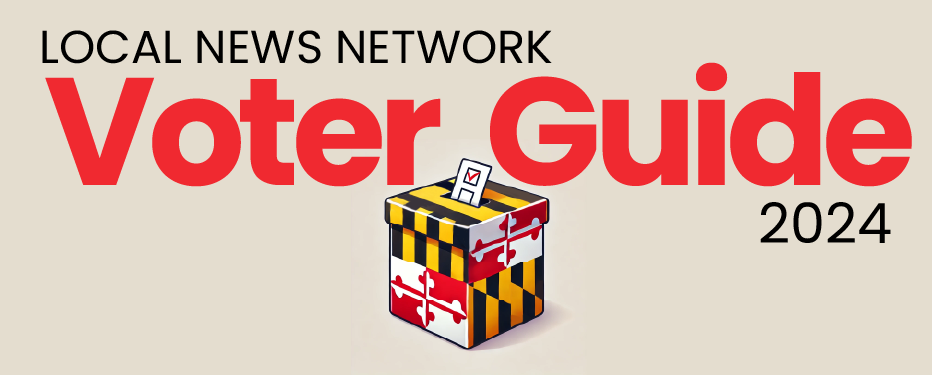Robin Brown
Running for school board in Prince George's County District 5
How old will you be on Election Day (Nov. 5)?
39
Are you currently employed? If so, where, and what is your job title?
I am a program and policy analyst for the Federal Emergency Management Agency.
What is the highest level of education that you completed, and where did you get that degree?
Master’s degree in human services counseling (criminal justice) from Liberty University.
Why are you running for the school board?
As a Prince George’s County Public Schools parent, I saw the lack of parent representation on the board and thought we needed more input from people who have a true vested interest in our schools.
What makes you a good candidate for the board?
A good candidate for the school board is a person who is professional, is willing to find solutions to recurring problems and always leads with integrity. To me, a good candidate is also a very personable person, responsive and organized. I am all of those things and more.
What is the most important issue facing your school board and what would you do about it if elected?
The most important issue facing our school board is our budget. If elected, I want to take a serious look at our funds and if they are allocated properly. There doesn't seem to be a lot of transparency when line items are decided. Because of this, we have seen major negative impacts in our schools – negative impacts with our infrastructure, special education programs and teacher salaries.
Please name a public leader you admire and explain why.
A public leader that I admire would be Shirley Chisolm. She was the first woman and African American to seek the nomination for president of the United States from one of the two major political parties in 1972. I admire her because despite much opposition and discouragement, she still believed in herself and pressed on no matter what the outcome would be.
The Blueprint for Maryland’s Future, passed by the General Assembly in 2021, is a 10-year plan that includes increased education funding to support early childhood education, increased teacher starting pay, college/career-readiness standards for high school graduates, and expanded services to multilingual and impoverished families, among other goals. Please tell us your views on the Blueprint and how it will affect your school district.
The Blueprint will have a significant impact in our schools. One major change is the conversion of nearly one-third of Maryland schools into community schools. These schools will have a coordinator to address specific needs like academic and language supports, nutrition, and medical, dental and mental health care.
However, the Blueprint also presents funding challenges. By 2034, local school districts are expected to pay significantly more annually than they would have without the Blueprint. This could strain our district’s budget and require careful financial planning.
On the positive side, the Blueprint aims to provide more resources for students who need them most, including low-income students, English language learners and students with disabilities. These measures are designed to ensure that all students have the opportunity to succeed.
Additionally, the Blueprint emphasizes the importance of high-quality and diverse teachers and leaders. This will involve new training programs, higher salaries and better career pathways for educators, which should help attract and retain top talent in our district.
Overall, while the Blueprint presents some financial challenges, its focus on equity and comprehensive support for students and educators aligns well with our district’s goals. It’s an ambitious plan that, if implemented effectively, could bring about much-needed improvements in our education system.
Some school districts nationwide are placing new limits on the use of cellphones in middle and high schools. What do you think should be the policy on student use of cellphones in your district, and why do you support that policy?
I have personally seen the level of distraction in the classroom when cellphone usage is not monitored. During instruction, scholars are listening to music, watching explicit content or preparing an opportunity for cyberbullying. On the flipside, cellphones come in handy when there is a connectivity issue within the school and can come in handy in case of an emergency situation. Teachers have taken it upon themselves to build policies of their own to limit distractions in their classroom, and they have seen tremendous improvement. I would support a policy on student use of cellphones in my district because we need to support our children in receiving and retaining circular content, rather than social media content.
Are you satisfied with your school district's efforts to ensure the safety of its students? What, if anything, should be done to improve school safety in your district?
As a parent, I have expressed to the board my dissatisfaction with the district's efforts to ensure the safety of our scholars. I think there needs to be a growing partnership with local law enforcement to remedy serious threats. In addition to that, more security presence would be helpful. Not all schools have metal detectors, and some only have one which at times have decreased instruction time due to long security lines before school.
Do you think there are circumstances when books should be removed from school libraries? If so, what kind of books should be removed, and who should make those decisions?
I do not believe in banning books, and as an avid reader, I encourage individuals to read topics that interest them. I would also want the board to consider parent and community input when books are suggested for the curriculum. On the campaign trail, parents have argued they were never aware of what their scholar was reading until it was too late. They felt disconnected and would have loved to be a part of their child's learning and development, especially when going over comprehension skills.
Some school districts enact policies allowing transgender and gender nonconforming students to use their preferred pronouns while at the same time not informing those students' parents about that decision. What is your opinion of such policies?
As an involved Prince George’s County Public Schools parent, I believe parents should have the opportunity to participate in their child's academic and social development. Not sharing that information with parents can separate and cause division within the community in which we serve. The point is to build partnerships, not disengage with parents who are willing to learn on how they can support their scholar.


